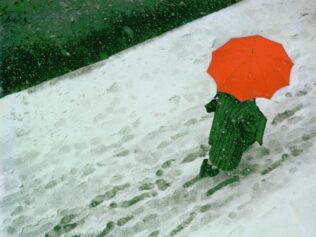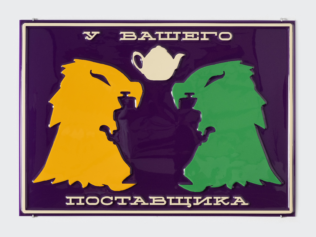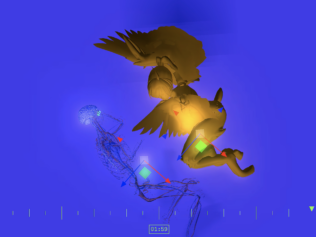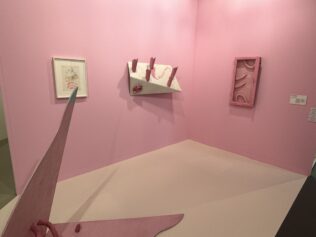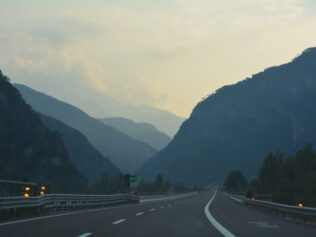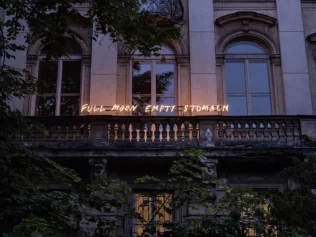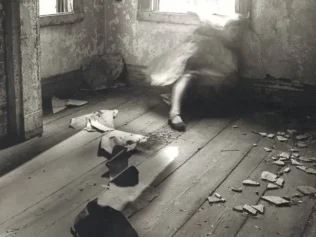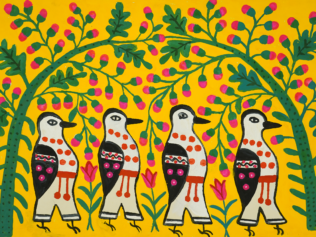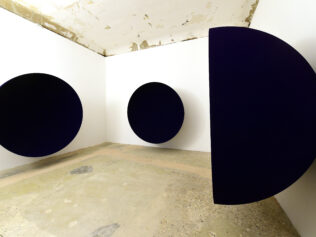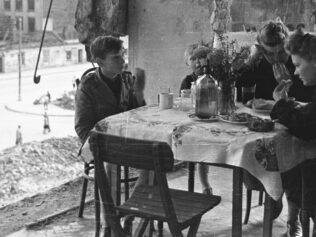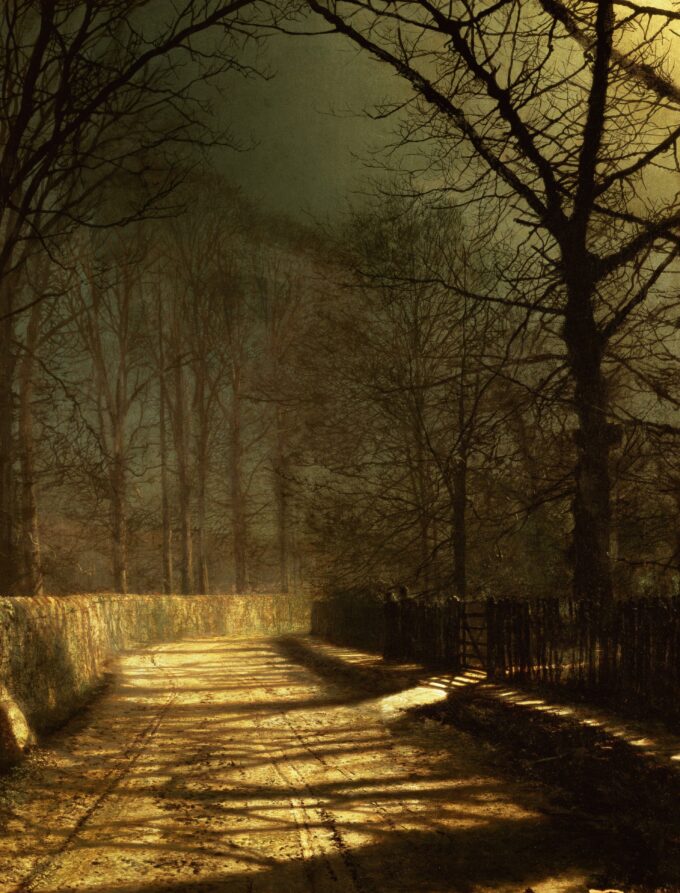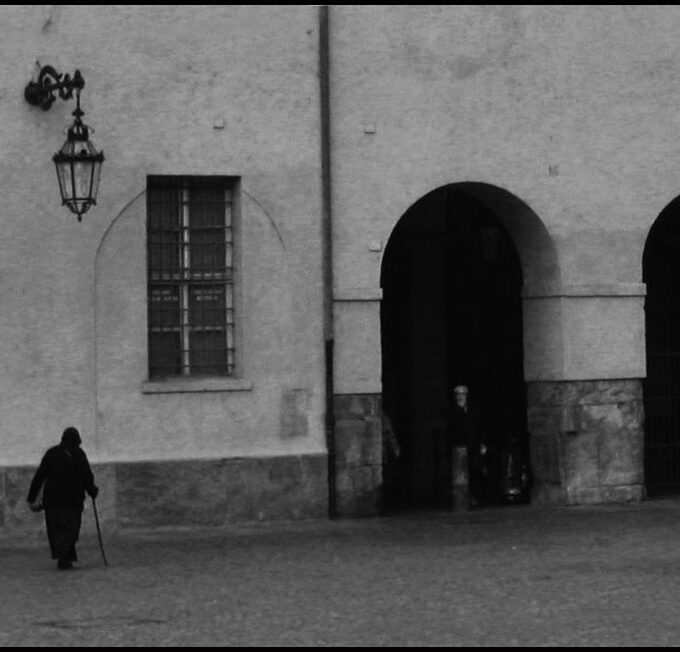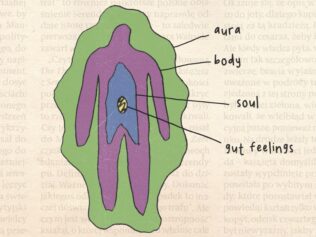Sitting in the garden, she sorts through seeds
of well-known plants, maybe animals,
though just as easily she could dream up
all these species,
and we’d accept that they exist.
Even with fingers gnarled as branches,
she pulls, sorts, and weaves
abundant threads, life forms, sequins,
plump fleas.
Suddenly she recalls a poem from primary school,
then a second, a third, and proud, she declaims in a flash,
grabs the slick tongue of memory,
smiles teasingly:
“You see? I remember.”
In her voice, the opening to Pan Tadeusz gets written anew,
every text takes on fresh colors, her gabbing gives off sparks
—maybe that’s the source of grandma’s feral
mottled skin, mimic
of generations.
Her freckled arms snuggle a whole hemisphere,
her healing hands marshal a meal:
“Smear it with butter, not a knife!” Abracadabra—
and unhealthy turns into something
healthy.
Steady as a fieldstone in the sun,
she remembers:
“Someone knocked on the window again at night,
so somebody died. But not me!
I’m right here, after all, I’m talking, and there’s still
so much to do.” She sits in the garden on a stool
as if in a trance. Murmurs covert counting-rhymes. Pulls
from the earth lengthy, lengthy, never-ending reins.
Author’s commentary:
This isn’t the first poem in which my Grandma Stasia has appeared. Staying with her in her village I realized that I have this persistent, iconic image of her in my head, while in fact, she is ever changing, especially since she turned eighty. And even though she’s still energetic, has a playful spark in her eyes, and jokes around, she is quickly shrinking, and it’s as if her spirit is detaching from her body. She doesn’t always hear us. We see the change most in terms of her memory—we repeat various things to her, and she forgets that we’ve already talked about them. Or we see it in her hands, which want to accomplish so many things, yet they’re turning into “wood.”
I’ve written about moments in which “grandma suddenly remembers,” and in a flash of illumination, she pulls from a deep well a true vividness, the fluidity of the world, as if she were bringing back that former order and feeling of safety. “Hey, it’s not the end!” . . . Who is this person, present through my entire life, who has influenced so many other lives?
I’m so proud of her. I imagine someday she’ll turn into an enduring tree that will talk to us and continue to shelter us.



